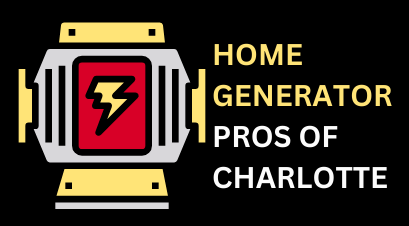Whole House Generators in Rama NC
A whole house generator is a backup power system designed to supply electricity to your entire home during an outage. Unlike portable generators, which typically power only essential appliances, a whole house generator is permanently installed outside your home, connected directly to your electrical system. When the main power grid fails, the generator automatically kicks in, providing uninterrupted power to all areas of your home.
Why Having a Generator Is Essential for Homes
Power outages can happen unexpectedly, and when they do, they can cause significant disruptions to your daily life. A whole house generator ensures that your home remains functional, allowing you to continue your routines without interruption. Whether it's a severe storm, a grid failure, or an unexpected blackout, having a reliable backup power source can be crucial for maintaining comfort, safety, and security.
Examples of Situations Where It Is Crucial
There are many scenarios where a whole house generator proves to be invaluable:
- Severe Weather: Hurricanes, tornadoes, and snowstorms can knock out power lines, leaving homes without electricity for days or even weeks.
- Health Concerns: If you or a family member relies on medical equipment that requires electricity, a power outage can be life-threatening.
- Remote Locations: Homes in rural areas often experience power outages more frequently and for longer periods, making a backup generator essential.
- Work from Home: If you rely on electricity for your work, a generator ensures that your productivity isn’t compromised during an outage.

Factors to Consider When Choosing a Whole House Generator
When selecting a whole house generator, several factors should be considered to ensure it meets your needs:
- Power Output: Choose a generator that can handle the electrical load of your entire home.
- Fuel Type: Common options include natural gas, propane, and diesel. Consider the availability and cost of fuel in your area.
- Noise Levels: Some generators are quieter than others, which can be important if you live in a neighborhood.
- Size and Placement: Ensure the generator fits in the space available outside your home and complies with local zoning regulations.
How It Works
A whole house generator is connected to your home's electrical system and automatically senses when the power goes out. Within seconds, it starts up and begins supplying power to your home. The transition is seamless, meaning you won't even notice when the generator takes over. Once the main power is restored, the generator automatically shuts off, and your home returns to the grid power.
Different Types
Whole house generators come in various types, each with its own advantages:
- Standby Generators: These are permanently installed and automatically activate during a power outage.
- Portable Generators: While not as powerful, some homeowners opt for portable generators that can be manually connected to the home’s electrical system.
- Inverter Generators: These are quieter and more fuel-efficient, making them a good choice for those concerned with noise and energy consumption.
Installation Process
Installing a whole house generator is a complex process that should be handled by professionals. Here’s what you can expect:
- Site Evaluation: A technician will assess your home to determine the best location for the generator.
- Permits: Depending on local regulations, you may need permits for installation.
- Installation: The generator is connected to your home’s electrical system and fuel source. This may involve trenching, electrical work, and plumbing.
- Testing: Once installed, the generator is tested to ensure it functions correctly.
Maintenance and Care
To keep your generator in optimal condition, regular maintenance is essential:
- Routine Inspections: Schedule regular inspections to check for any issues with the generator’s components.
- Oil Changes: Just like a car engine, your generator will need regular oil changes to keep it running smoothly.
- Battery Check: Ensure the battery is in good condition so the generator can start up when needed.
- Fuel Supply: Make sure your generator has a sufficient and fresh fuel supply.
Warranty and Support
When investing in a whole house generator, it's important to consider the warranty and support options available:
- Warranty Coverage: Look for a generator with a comprehensive warranty that covers parts and labor for several years.
- Customer Support: Choose a brand that offers reliable customer support for troubleshooting and maintenance.
What We Offer
We provide top-quality whole house generators tailored to meet the needs of homeowners. Our products are durable, efficient, and come from trusted brands. We also offer professional installation services, ensuring that your generator is set up correctly and functions flawlessly. Additionally, we provide maintenance packages to keep your generator in peak condition, and our customer support team is always ready to assist you.
- Residential Generators
- Commercial Generators
- Portable Generators
- Electric Generators
- Propane Generators
- Solar Generators
- Generator Repairs
- Generator Maintenance
- Generator Parts
If you're considering a
whole house generator in Rama, NC, don't hesitate to reach out to us. Our experts are here to answer any questions you may have and guide you through the process of selecting and installing the right generator for your needs. Contact us today to schedule a consultation and ensure your home is prepared for any power outage.
